Understanding American Birthright Citizenship: History, Impact, and Controversies
 What is the U.S Citizenship: Benefits, Responsibilities And FAQs What is the U.S Citizenship: Benefits, Responsibilities And FAQs |
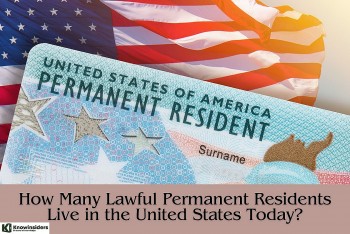 Permanent Residents in the US: Rights, Responsibilities, Limitations And Green Card Permanent Residents in the US: Rights, Responsibilities, Limitations And Green Card |
President-elect Donald Trump said he still plans to end birthright citizenship in the United States on day one — but was unable to provide insight into how he would go around the 14th Amendment. This statement has reignited debates surrounding one of the most controversial topics in American immigration and constitutional law: Birthright citizenship.
Learn more: President Trump to End U.S. Birthright Citizenship for Children of Illegal Immigrants
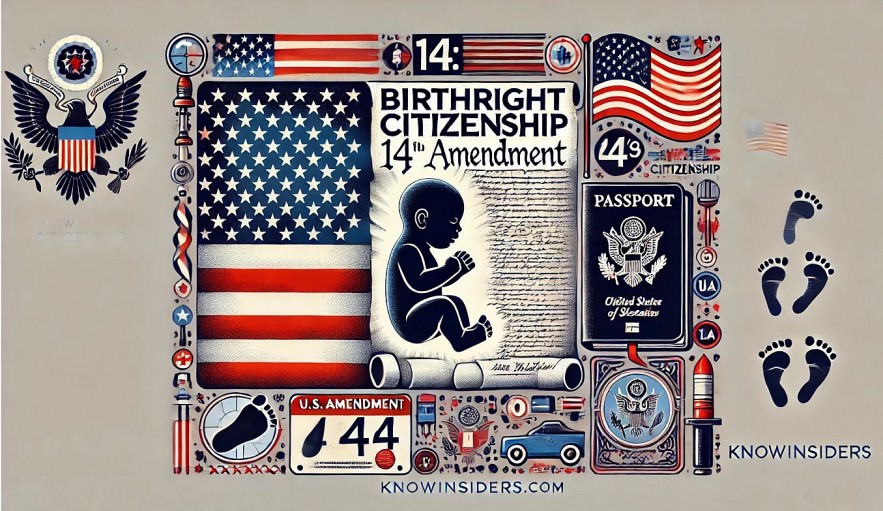 |
| Can birthright citizenship be ended in the U.S |
What Is Birthright Citizenship?
Birthright citizenship refers to the legal right to citizenship granted to individuals born within the territorial boundaries of a country, regardless of the citizenship or immigration status of their parents. In the United States, this principle is enshrined in the 14th Amendment to the Constitution, which states:
“All persons born or naturalized in the United States, and subject to the jurisdiction thereof, are citizens of the United States and of the State wherein they reside.”
This means that anyone born on U.S. soil automatically becomes a U.S. citizen, except for specific exceptions such as children of foreign diplomats or enemy combatants.
How Many Birthright Citizens Are There in the U.S.?
As of recent estimates, there are approximately 4.7 million children born in the U.S. to undocumented immigrant parents, and they have acquired citizenship by virtue of their birth. Overall, the majority of the U.S. population - over 90% of Americans—are birthright citizens. This includes individuals born to citizens, lawful permanent residents, and undocumented immigrants.
Birthright citizenship plays a crucial role in shaping the demographics of the United States and maintaining its diverse identity.
 US Citizenship: Top 100+ Test Questions and Best Answers US Citizenship: Top 100+ Test Questions and Best Answers |
The History of Birthright Citizenship in the U.S.
Origins of the 14th Amendment
Birthright citizenship in the U.S. is rooted in the aftermath of the Civil War. The 14th Amendment, ratified in 1868, was designed to grant citizenship to formerly enslaved African Americans and to ensure that no state could deny anyone "equal protection of the laws."
This amendment overturned the infamous Dred Scott v. Sandford decision of 1857, which held that African Americans could not be citizens. By establishing birthright citizenship, the 14th Amendment became a cornerstone of civil rights and equality in the United States.
Interpretation by Courts
The principle of birthright citizenship was further clarified in the United States v. Wong Kim Ark case (1898). In this landmark decision, the Supreme Court ruled that a child born in the U.S. to Chinese immigrants was a U.S. citizen, affirming the broad interpretation of the 14th Amendment.
The Current Reality of Birthright Citizenship
Benefits of Birthright Citizenship
Social Inclusion: It prevents the creation of a stateless population and ensures that every person born in the U.S. has access to rights and privileges such as voting, education, and government assistance.
Economic Impact: Birthright citizens contribute significantly to the workforce and economy, ensuring a steady supply of talent and innovation.
Diversity and Unity: It reinforces the United States' identity as a nation of immigrants and promotes social cohesion.
Criticisms and Controversies
Opponents argue that birthright citizenship creates opportunities for "birth tourism," where foreign nationals travel to the U.S. to give birth so their children can obtain citizenship. Additionally, some believe it incentivizes undocumented immigration, leading to calls for reform or repeal.
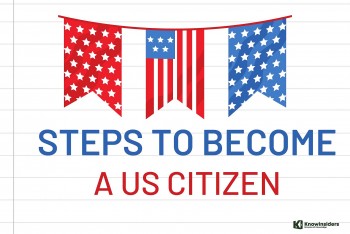 How To Become A US Citizen Based On Common Ways How To Become A US Citizen Based On Common Ways |
The Future of Birthright Citizenship
Can Birthright Citizenship Be Repealed?
Efforts to end birthright citizenship have faced significant legal and constitutional challenges. Since the 14th Amendment explicitly guarantees citizenship to all individuals born on U.S. soil, any attempt to abolish this right would likely require a constitutional amendment—an exceedingly difficult process.
President-elect Trump's remarks suggest a desire to test the limits of executive authority to reinterpret the 14th Amendment, possibly through an executive order. However, legal experts widely agree that such an order would face immediate and intense challenges in the courts.
International Comparisons
While the U.S. is one of the few developed countries that offers unconditional birthright citizenship, many nations have adopted more restrictive policies. For instance, countries like Germany and Japan require at least one parent to be a citizen or permanent resident.
Learn more: Which U.S. Citizens Could Be Deported Under Trump’s Plan?
Key Questions and Debates
Should Birthright Citizenship Be Reformed?
Advocates for reform argue that the U.S. should align its policies with other developed nations to discourage undocumented immigration. However, critics warn that restricting birthright citizenship could lead to a stateless population, increasing inequality and societal division.
How Would Ending Birthright Citizenship Affect the U.S.?
Ending birthright citizenship could have far-reaching consequences:
- Millions of children born to undocumented immigrants might be rendered stateless.
- It could significantly alter the demographic and economic landscape of the country.
- Legal battles and enforcement challenges would likely arise, creating further uncertainty.
Conclusion
Birthright citizenship has been a cornerstone of American identity and equality for over 150 years. While it is hailed as a testament to the country’s commitment to civil rights, it remains a polarizing issue in modern politics. Any attempt to alter or abolish this principle would not only face significant legal hurdles but could also reshape the fabric of American society.
As debates continue, the nation must grapple with the fundamental question: what does it mean to be an American, and who gets to decide?
FAQs
1. What is birthright citizenship?
Birthright citizenship is the automatic granting of citizenship to individuals born within a country's borders, regardless of their parents' status. In the U.S., it is guaranteed by the 14th Amendment.
2. Does every country offer birthright citizenship?
No, only a few countries, including the U.S. and Canada, offer unconditional birthright citizenship. Most nations have more restrictive policies.
3. Can birthright citizenship be ended in the U.S.?
Ending birthright citizenship would require a constitutional amendment, as it is protected by the 14th Amendment.
4. Why is birthright citizenship controversial?
Critics argue it incentivizes undocumented immigration and birth tourism, while supporters emphasize its role in promoting equality and preventing statelessness.
5. What would happen if birthright citizenship were abolished?
Ending birthright citizenship could lead to millions of stateless individuals and significant social, legal, and economic repercussions.
6. What is the 14th Amendment?
The 14th Amendment, ratified in 1868, guarantees citizenship to all persons born or naturalized in the U.S. and ensures equal protection under the law.
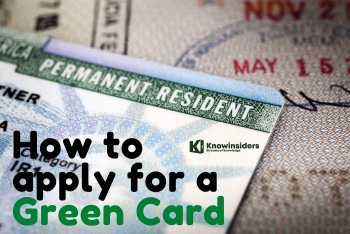 How To Apply For A Green Card in the US With The Simple Ways How To Apply For A Green Card in the US With The Simple Ways The US green card is considered the key to immigration. Since then, the common question many people have is how to get a green card ... |
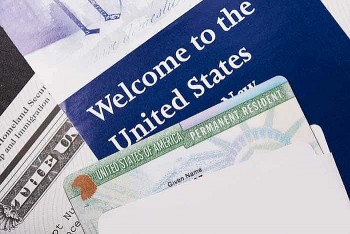 What Is A Green Card or Permanent Resident Card in the U.S What Is A Green Card or Permanent Resident Card in the U.S Many people hope one day to be able to call the United States home. Insights into the US green card system and related data are ... |


























